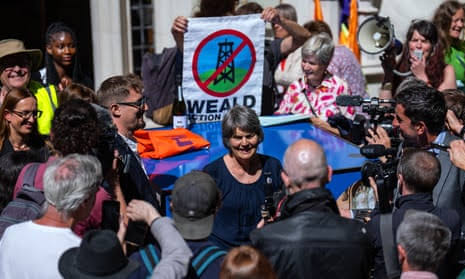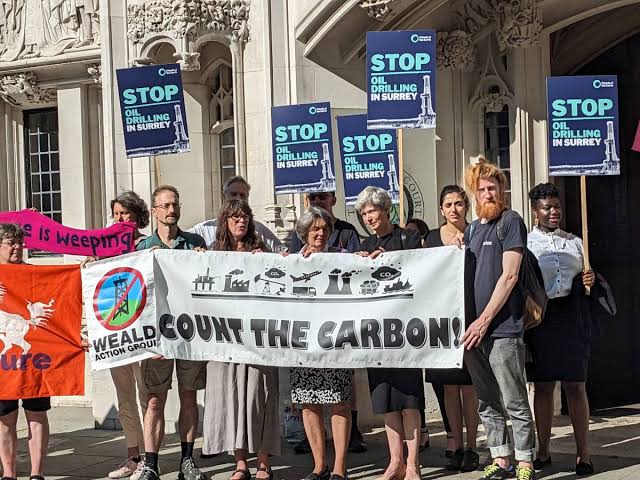The Supreme Court has ruled that a local council must consider the full climate impact of burning oil from new wells, a landmark decision that could jeopardize future UK oil and gas projects. Traditionally, planning law only required councils to assess the environmental impact of constructing the wells, not the use of the final oil products.

Sarah Finch who brought the case against Surrey County Council on behalf of campaigners, challenges this assumption and could threaten new fossil fuel projects across the UK. Although Surrey County Council believed it had followed planning law, the Supreme Court’s decision requires it to account for downstream emissions in its assessments.
Horse Hill oil well in Surrey, which was granted permission to expand operations in 2019. Finch, representing Weald Action Group, argued that the council should have included greenhouse gas emissions from burning the extracted oil in its Environmental Impact Assessment. The Supreme Court judges, in a three-to-two majority, agreed.
Lord Leggatt emphasized that it is “inevitable” the oil will be burned, making the resulting emissions a direct consequence of the project that must be considered. The six wells at Horse Hill are expected to produce 3.3 million tonnes of crude oil over the next 20 years, potentially generating over 10 million tonnes of CO2, according to Friends of the Earth.
Stephen Sanderson, CEO of UK Oil and Gas plc, called the ruling “perplexing” but noted the company’s shift towards hydrogen storage. UK Oil and Gas plc plans to work with Surrey County Council to amend its planning application, aiming to keep future production below the threshold requiring an environmental assessment.

Campaigners believe this judgment could impact ongoing legal challenges for projects like the Rosebank oil field and the proposed coal mine in Whitehaven, Cumbria. Weald Action Group hailed the ruling as a significant setback for fossil fuel lobbyists, stressing that the UK is already struggling to meet its carbon reduction targets and international emission pledges.
The ruling which is influenced by UK law partially based on European law, may also have international implications. Finch’s victory concludes a five-year legal battle, supported by Friends of the Earth and Greenpeace. Initially rejected by the High Court, her challenge received a split decision at the Appeal Court in 2021 before proceeding to the Supreme Court last year.
While the Supreme Court did not mandate the rejection of new oil wells, it established that downstream emissions must be considered in future planning decisions, setting a new precedent for environmental assessments.
